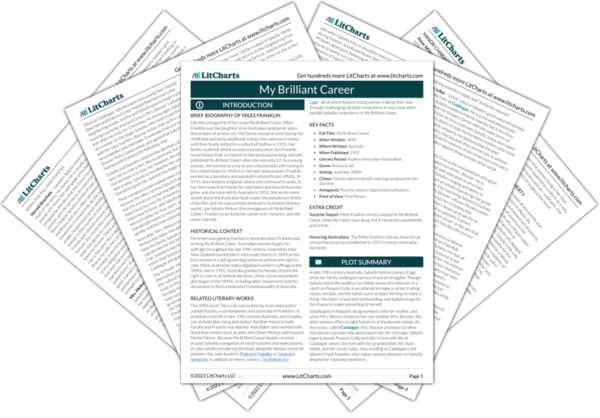Sybylla expects Harold to spurn her, but she apologizes anyway. This is a marked lack of selfishness from the usually self-absorbed Sybylla: her apology is not about earning Harold’s forgiveness, but about acknowledging to him that she was in the wrong. Again, her fear of being unwomanly resurfaces, and again Sybylla must confront her understanding of love. Harold reveals that he has never wavered in his love for Sybylla, and has in fact worried that she doesn’t return his feelings; this suggests that Sybylla is more lovable than she believes, and it continues the theme in their relationship of misunderstanding each other despite genuine affection. While Sybylla is usually the one seeking love, now she is trying to bring herself to love Harold fully instead of “very nearly” loving him. Even as she grapples with this relationship and her fear of being unwomanly, Sybylla demonstrates her strong will by promising to defy Harold when he is in a temper.
